LATEST INSIGHTS
Your Present Location: LATEST INSIGHTS-
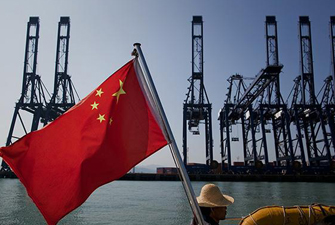
Liu Ge: China’s economy proves resilient amid rebalancing
Newly released data from China's National Bureau of Statistics revealed the producer price index (PPI) for November rose 2.7 percent from last year, yet was 0.6 percentage points lower than October's PPI.
2018-12-27 -
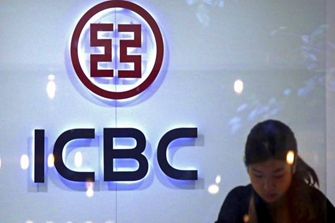
China to use perpetual bonds to boost banks’ capital adequacy
China will encourage commercial banks to replenish capital by issuing perpetual bonds, offering a new tool for lenders facing pressure to improve capital ratios amid a slowing economy and tightening regulation.
2018-12-27 -

Ding Gang: Rural-urban divide troubles not only France
A narrow or even closed urban-rural gap is an outstanding feature of a developed society compared to a developing one. Nonetheless, France's "yellow vest" protest marked a reversion. The gap that was bridged is widening again and causing social instability.
2018-12-27 -
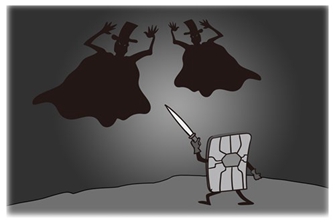
Wen Yang: Trade war, technological war, where will tensions end?
The US-China technology war hype started after the ZTE case came to surface. There has been no doubt that US intention of starting trade war is beyond trade frictions. It means China has to prepare for more US hostilities.
2018-12-26 -

Portugal joins the B&R circle of friends: Example for European countries
Portugal has been the first Western European country to join the circle of friends for the Belt and Road Initiative, setting a good example for other European countries.
2018-12-26 -

Bian Yongzu: Unlike U.S., China sacrifices private gains for AIIB prosperity
With the latest accession of six prospective members, the total number of AIIB members has expanded to 93. This is a remarkable result for a 3-year-old multilateral cooperation agency, which is the first to be set up under the leadership of developing countries.
2018-12-26 -
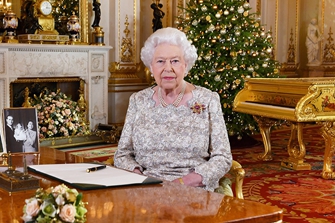
Queen calls for unity in Christmas message
In her annual Christmas message, Queen Elizabeth II appealed for people to show more respect to those with opposing views.
2018-12-26 -
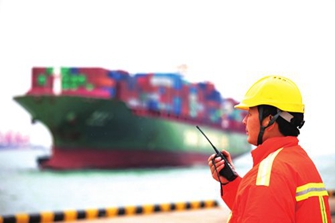
China cuts tariffs to boost trade; more targeted measures needed
China on Monday announced plans to further reduce and scrap tariffs on hundreds of foreign and domestic products, as the country gears up to boost its foreign trade, which has seen slower growth in recent months amid deteriorating conditions caused by trade tensions and slowing global demand.
2018-12-25 -
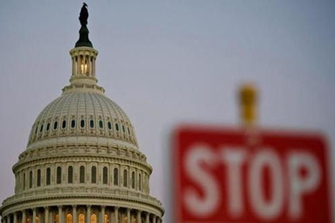
Wang Peng: What’s behind U.S. government shutdown?
The partial shutdown of the U.S. federal government is set to stretch past Christmas, as the Senate adjourned on Saturday for a holiday, with no deal in sight to end the impasse over funding Trump's U.S.-Mexico border wall. Most critical national security functions remain operational, but some 800,000 federal employees are impacted.
2018-12-25 -

Wang Peng interviewed by CRI on Meng Wanzhou's issue
Canadian court on Tuesday granted bail to Huawei Financial Chief Officer Meng Wanzhou who has been detained for nearly two weeks for accusing of lying to bankers about use of a covert subsidiary to sell to Iran in breach of sanctions. Meng denies any wrongdoing and has said she will contest the allegations.
2018-12-25 -
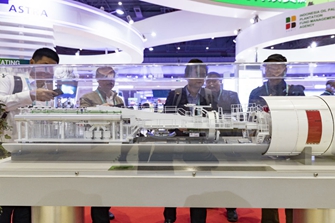
CIIE: A Global Beacon of Opening up
The first China International Import Expo (CIIE) kicked off on November 5 in Shanghai with a keynote speech from Chinese President Xi Jinping at the opening ceremony. Xi’s speech conveyed an important and inspiring message to the world: China remains steadfastly committed to expanding its opening up.
2018-12-25 -
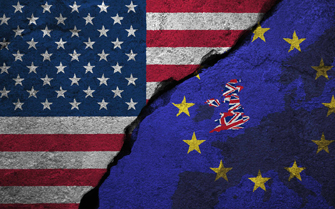
William Jones: Winds of change in the Atlantic alliance, an era of Trump and Brexit
With 2018 drawing to a close, it is time to review the many ups and downs that occurred in the international community. Among others, the U.S.-EU relations have been thrown into the spotlight, making the world wonder if the good old alliance is on the brink of breaking. In this article for CGTN, William Jones, the Washington bureau chief for the Executive Intelligence Review, and non-resident senior fellow of Chongyang Institute for Financial Studies at Renmin University of China, shares his insights.
2018-12-24 -
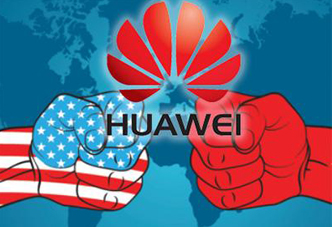
US hacking accusation against China reflects rising McCarthyism: experts
Chinese experts and officials on Friday strongly condemned the latest US Justice Department accusation of China’s hacking behaviors, which is considered to be predicated on rising McCarthyism in America that has seriously interrupted its judgment and decision-making process.
2018-12-24 -
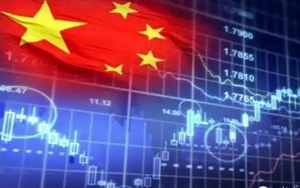
Key meeting charts course for China's economy in 2019
The Chinese economy has kept up good growth momentum, and more new measures will be taken in 2019 to facilitate its high-quality development, according to a key economic meeting concluded Friday.
2018-12-24 -

US to withdraw troops from Syria
US President Donald Trump announced on Wednesday that the US will withdraw its troops from Syria in an unexpected move that analysts said exposes the divide among US policymakers and does not necessarily indicate the US will shift its focus to other regions.
2018-12-21 -
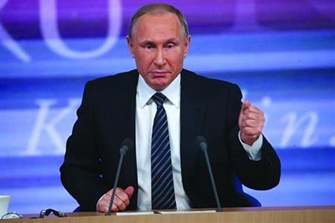
Putin values China's rapid development
Russian leader pushes economic growth at annual press conference
Russia highly values the rapid development of China since the start of the reform and opening-up policy, and emphasized deeper cooperation between the two countries, President Vladimir Putin said at his annual end-of-year news conference in Moscow on Thursday.2018-12-21 -
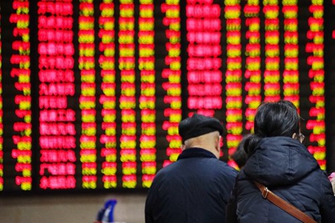
Little effect on China’s markets from Fed rate hike
The mainland financial markets have responded calmly to the US Federal Reserve's overnight decision to raise its benchmark interest rates. Fluctuations in the range of the yuan's exchange rate against the US dollar were limited.
2018-12-21 -
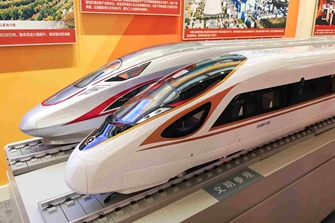
Liu Zhiqin: Mixing miracle with dream
There are many miracles in the world and in the process of human civilization. But the rise of China is, among them, the greatest. In just 40 years, China accomplished the most marvelous spectacle in human development, achieving huge societal progress and lifting the living standards of billions of people.
2018-12-20 -
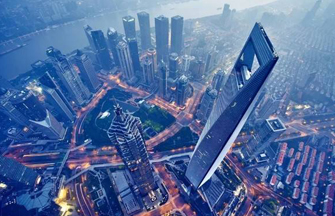
Liu Zhiqin: China’s development model belongs to the world
As globalization goes deeper, economic and trade ties between China and most other countries in the world have seen rapid growth. In this new era of high interconnectivity and win-win cooperation, China has learned from the development experience of countries worldwide with a humble attitude and honest diligence to form its unique "socialism with Chinese characteristics" development model. In this process, China borrowed experience from the world's most developed countries and set foot on a development path that was suited to its own situation. This model has powered the economic take-off and soaring growth of China.
2018-12-19 -
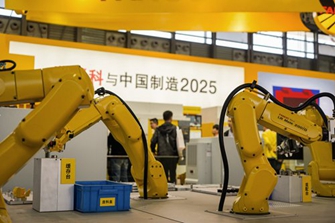
China won’t sway from upgrading, despite US concerns over ‘Made in China 2025' plan
China will not give up its pursuit of technological progress through industrial transformation, even if it makes some changes to the "Made in China 2025" initiative, Chinese experts said on Thursday.
2018-12-19
























































































 京公网安备 11010802037854号
京公网安备 11010802037854号





